Avocado Oil vs. Coconut Oil: Two culinary powerhouses worthy of a spot in your kitchen pantry. As a holistic nutrition specialist, I am frequently asked about the benefits and differences between these versatile cooking oils and how they impact our well-being. Avocado oil and coconut oil receive my highest recommendations for many reasons, provided you choose the best quality.
They each have a high smoke point and provide healthy fats. It is important to get unrefined cold-pressed virgin coconut oil and avocado oil from a reputable well-tested source! (See our recommendations below).
In this article, we will explore the unique properties of avocado and coconut oil, unraveling their nutritional advantages and culinary potential, and how to choose the healthiest product to help you make an informed choice for your health-conscious culinary endeavors.
Jump to:
Choosing a Healthy Cooking Oil
For many years, I never knew the importance or health impacts of choosing suitable oils for cooking. I grabbed whatever was convenient in the large section with various vegetable oils.
In nutrition school, I learned how some industrial oils are processed. They are stripped of their nutrients and treated with harsh chemicals and additives to mass produce.
These chemicals are unnatural and horrible for our health causing systemic inflammation, oxidative stress, and so much more.
I also learned how oils are chemically structured and altered under high temperatures. Certain oils (polyunsaturated fats) are very chemically unstable and will release harmful chemicals called free radicals that wreak havoc on the body. They can even turn into trans fats that are horrible for heart health.
Surprisingly, many of the most commonly used oils are these very unhealthy options! Fortunately, there are better options for a healthy oil to cook use that not only stand up to high-heat cooking but also have incredible health benefits.
Two of the healthiest oils are avocado oil and coconut oil. In their minimally processed forms (cold-pressed and unrefined) these healthy fats contain extraordinary health benefits that support a healthy diet and lifestyle.
Once I began using healthier oils to cook with, I began noticing a major difference in my energy, pain levels, weight loss results, and overall health.
This article is intended for informational purposes only. As a Holistic Nutrition Specialist, I can share information on foods and offer suggestions for what is good, better, and best from a nutritional standpoint.
This article should not replace the advice of a qualified healthcare professional who is well-versed in nutrition and can offer a unique recommendation based on your unique needs.
What is Avocado Oil?
Avocado oil is a natural type of oil derived from the flesh of ripe avocados, the luscious and creamy green fruit native to Central and South America.
The oil extraction process typically involves pressing the avocado pulp to separate the oil from the fruit's fibrous components, resulting in a smooth, rich, and highly nutritious oil.
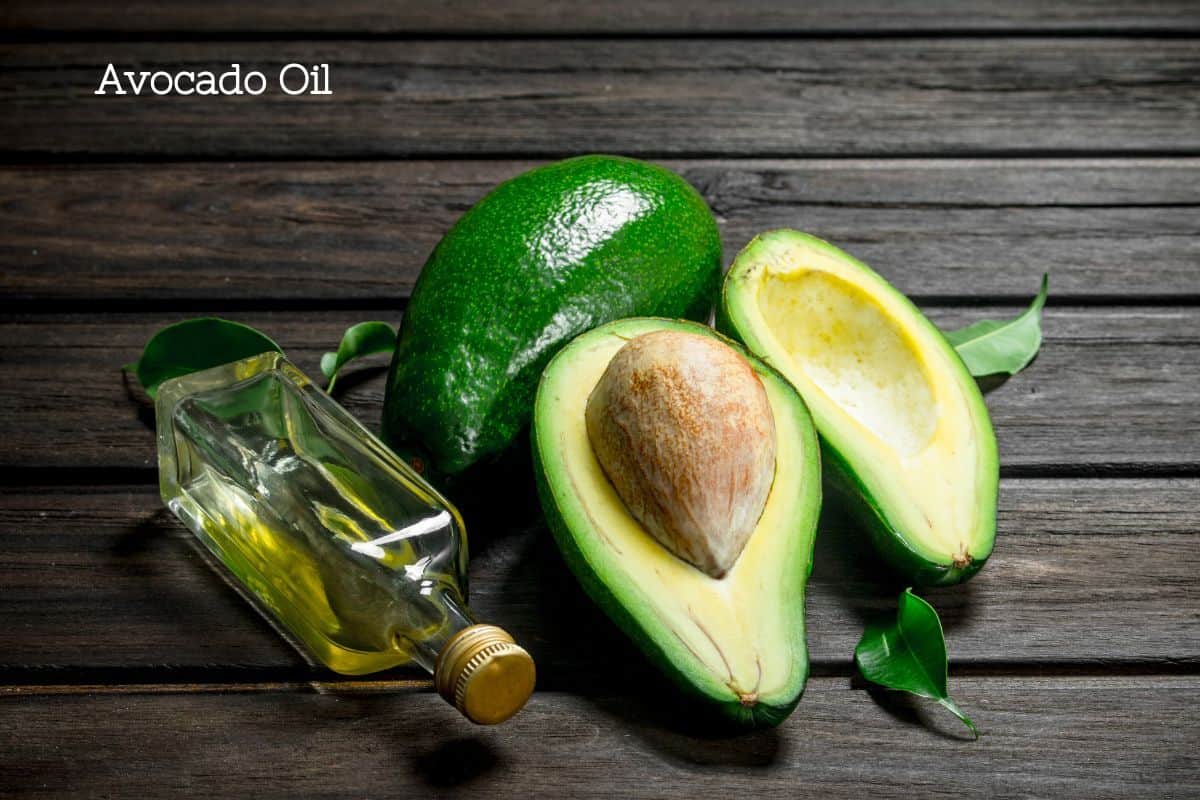
Nutrition
One of the key distinguishing features of avocado oil is its remarkable nutritional profile.
It is renowned for its high levels of monounsaturated fats, specifically oleic acid, which constitutes a significant portion of the oil.
Monounsaturated fats are considered heart-healthy and have been linked to various benefits, including reducing LDL cholesterol (low-density lipoprotein) levels while promoting higher HDL (high-density lipoprotein) cholesterol levels, thus supporting cardiovascular health.
Moreover, avocado oil is a rich source of essential nutrients.
It contains an array of vitamins, such as vitamin E, which acts as a potent antioxidant, protecting cells from oxidative damage.
It also contains vitamin K which is crucial to blood clotting.
Additionally, avocado oil is abundant in minerals like potassium, which plays a vital role in maintaining proper nerve function and electrolyte balance.
Smoke Point
One of the most appealing aspects of avocado oil is its versatility in the kitchen. With a high smoke point, often ranging between 375°F to 400°F (190°C to 204°C), it is suitable for various cooking methods, including sautéing, roasting, baking, and frying.
Unlike some other oils, avocado oil remains stable at high temperatures, which means it is less likely to break down and produce harmful compounds during cooking.
Self-Care Uses
Beyond its culinary applications, this plant-based oil has gained popularity in skincare and haircare products due to its emollient properties and ability to nourish and hydrate dry skin and hair.
 Avohass Kenya Extra Virgin ...Shop on Amazon
Avohass Kenya Extra Virgin ...Shop on Amazon
What is Coconut Oil?
Coconut oil, the golden elixir derived from the meat of coconuts, holds a rich tapestry of health benefits, nutritional content, and culinary uses.
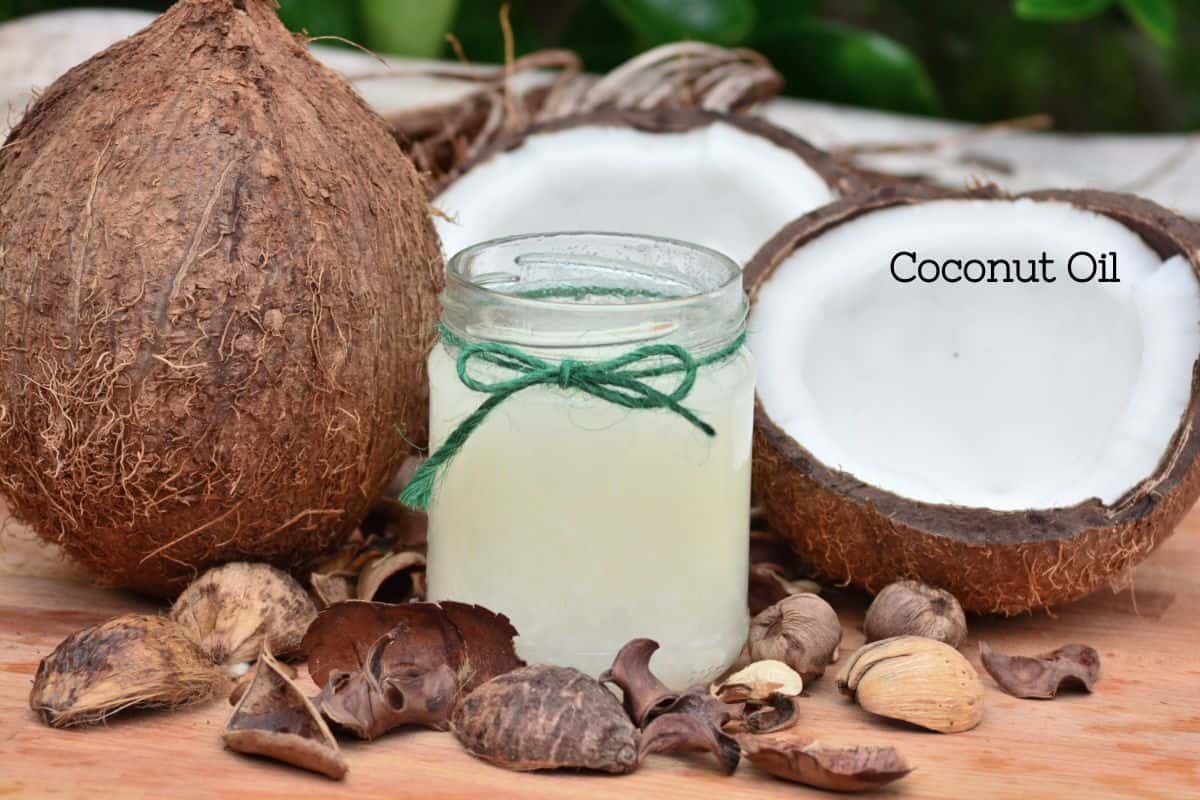
Nutrition
Bursting with lauric acid, a unique type of fatty acid that boasts impressive antimicrobial and immune-boosting properties, coconut oil has earned its reputation as a powerhouse of good fats.
One of the standout attributes of coconut oil lies in its ability to enhance the absorption of fat-soluble vitamins A, D, E, and K.
Incorporating this oil into your diet can optimize the utilization of these essential nutrients, supporting various bodily functions and promoting overall vitality.
Besides its distinctive taste that lends a unique tropical note to dishes, coconut oil delivers a host of anti-inflammatory properties.
But perhaps the most celebrated aspect of coconut oil is its impact on cholesterol levels.
Contrary to popular belief, coconut oil has shown promising results in elevated levels of good cholesterol (HDL cholesterol).
The consumption of good fats, like those found in coconut oil, may contribute to a favorable cholesterol balance, promoting heart health in the process.
Cooking With Coconut Oil
Another interesting fact is when coconut oil is at room temperature or heated, it is a liquid but when it is refrigerated, it is a solid.
Whether used in cooking, baking, or as a natural moisturizer for skin and hair, coconut oil's multifunctional versatility is undeniable.
Its ability to withstand high temperatures without compromising its nutritional integrity makes it an excellent choice for a wide range of culinary applications.
As you savor the creamy texture and subtle coconut aroma of this miraculous oil, rest assured that you are indulging in a treasure trove of good fats and essential nutrients.
Embrace the goodness of coconut oil mindfully, and its potential health benefits will undoubtedly add a touch of vitality to your holistic well-being.
 Island Fresh Organic Coconu...Shop on Amazon
Island Fresh Organic Coconu...Shop on Amazon
Comparing Avocado and Coconut Oil
Fatty Acid Composition
Avocado oil is predominantly composed of monounsaturated fats, particularly oleic acid, which is associated with heart health and beneficial effects on cholesterol levels. On the other hand, coconut oil is predominantly composed of saturated fats, with a notable presence of medium-chain triglycerides (MCTs).
Health Benefits
Both oils offer unique health benefits.
Avocado oil's high content of monounsaturated fats may contribute to reducing the risk of heart disease and inflammation.
It is also rich in vitamin E and potassium, providing antioxidant support and aiding nerve function, respectively.
Additionally, coconut oil has antimicrobial properties, making it beneficial for oral health and immune support.
Culinary Versatility
Avocado oil's mild, buttery flavor makes it an excellent choice for sautéing, roasting, and salad dressings.
Its high smoke point allows it to withstand high-heat cooking methods.
Coconut oil's unique tropical aroma and flavor lend themselves well to stir-fries, baking, and various Asian and tropical cuisines.
It also has a relatively high smoke point, making it suitable for frying and high-temperature cooking.
While avocado oil may be the preferred choice for individuals seeking a cooking oil with a more neutral taste, coconut oil's distinct flavor can enhance certain dishes, imparting a tropical touch to recipes.
Nutritional Content
Both oils contain fat-soluble vitamins E and K. Avocado oil is also a source of potassium, whereas coconut oil contains only trace amounts of essential vitamins and minerals.
Taste
Avocado oil has a mild, smooth, and buttery flavor with a subtle nutty essence, making it a versatile option for both savory and sweet dishes.
Coconut oil, on the other hand, boasts a pronounced tropical coconut taste, adding an exotic touch to Asian, Caribbean, and tropical cuisines, as well as a unique twist to baked goods, smoothies, or desserts.
Quality
When it comes to healthy cooking oils the most important factor is the quality of the oil and its source. Unrefined, Virgin, and Cold Pressed are often valuable terms that will help in the process of choosing a healthy cooking oil.
Nutritional Chart Comparison
Below is a simplified comparison chart of the nutrition facts for avocado oil and coconut oil per 1 tablespoon (15ml) serving:
| Nutrition Facts | Avocado Oil | Coconut Oil |
|---|---|---|
| Calories | 120 | 120 |
| Total Fat | 14g | 14g |
| - Saturated Fat | 2g | 12g |
| - Monounsaturated Fat | 10g | 0.8g |
| - Polyunsaturated Fat | 1.5g | 0.2g |
| Trans Fat | 0g | 0g |
| Cholesterol | 0mg | 0mg |
| Sodium | 0mg | 0mg |
| Total Carbohydrates | 0g | 0g |
| Dietary Fiber | 0g | 0g |
| Sugars | 0g | 0g |
| Protein | 0g | 0g |
| Vitamin E | 2.7mg (14%*) | 0.2mg (1%*) |
| Vitamin K | 11µg (14%*) | 0µg (0%*) |
| Smoke Point | 375°F (190°C) | 350°F (177°C) |
Refined vs Unrefined
When it comes to selecting coconut oil and avocado oil, several factors come into play, including the refining process and various terminologies used to describe the oils.
Understanding the distinctions between refined, unrefined, cold-pressed, and virgin oils can help you make an informed decision.
Coconut Oil
Refined Coconut Oil: Refined coconut oil is obtained from dried coconut meat and undergoes further processing, including bleaching and deodorizing.
This refining process strips the oil of its natural nutrients and coconut flavor and aroma, resulting in a more neutral taste.
Refined coconut oil typically has a higher smoke point and a longer shelf life.
However, most of the beneficial nutrients found in unrefined coconut oil are lost during the refining process.
Unrefined (Virgin) Coconut Oil: Unrefined or virgin coconut oil is derived from fresh coconut meat without undergoing extensive processing.
It retains its natural coconut flavor, aroma, and a wide range of beneficial nutrients, such as lauric acid and other medium-chain triglycerides (MCTs).
While unrefined coconut oil has a slightly lower smoke point compared to refined versions, it is a preferred choice for those seeking a more authentic coconut taste and health benefits.
Avocado Oil
Refined Avocado Oil: Refined avocado oil is processed using heat and chemicals to remove impurities and neutralize the taste.
This refining process results in a milder flavor and a higher smoke point.
However, some of the natural nutrients found in unrefined avocado oil may be diminished during the refining process.
Unrefined (Cold-Pressed) Avocado Oil: Unrefined or cold-pressed avocado oil is obtained through a mechanical pressing process, without the use of excessive heat or chemical solvents.
This gentle extraction method preserves the oil's natural nutrients, flavor, and aroma. Cold-pressed avocado oil typically has a slightly lower smoke point but offers a richer taste profile and potential health benefits.
Note: It is important to maintain foods as close to their natural state as possible. Oils are especially important for this fact.
Chemical solvents and excessively high amounts of heat change the composition of the oil and remove the beneficial properties of these superfood oils. Unrefined is the way to go!
 Avohass Kenya Extra Virgin ...Shop on Amazon
Avohass Kenya Extra Virgin ...Shop on Amazon
 Island Fresh Organic Coconu...Shop on Amazon
Island Fresh Organic Coconu...Shop on Amazon
What is a Smoking Point?
The smoking point of an oil refers to the temperature at which it begins to break down and produce visible smoke.
Understanding the smoking point is crucial when it comes to choosing the best oil for various cooking methods, especially those involving higher temperatures and deep frying.
Oils with a high smoke point are ideal for frying, sautéing, and other high-temperature cooking techniques, as they remain stable and retain their nutritional integrity.
On the other hand, oils with a low smoke point, such as those rich in polyunsaturated fatty acids, can be risky when used for high-temperature cooking.
Heating oils beyond their smoking points can lead to the formation of harmful compounds and free radicals, which are associated with an increased risk of heart disease and other health issues.
As a holistic nutrition specialist, my priority is to recommend cooking oils that strike a balance between flavor, nutritional value, and safety.
Avocado oil and Coconut Oil, with their high levels of monounsaturated fat and commendable higher smoke point, have become popular choices for high-temperature cooking. Its ability to withstand heat while preserving its nutritional properties makes it an excellent option for deep frying and sautéing without compromising your health.
By opting for stable oil with high smoking points, you can indulge in your favorite dishes with a reduced risk of harmful byproducts and still enjoy the delectable flavors they offer.
Conversely, oils with low smoking points, such as flaxseed oil or walnut oil, are better suited for drizzling over salads or using as a finishing touch on cooked meals, where lower temperatures are involved to avoid the risk of oxidation and degradation.
Dangers of Refined Oils
Refined oils, often touted for their longer shelf life and higher smoke points, have become pervasive in the modern diet due to their widespread availability and economic advantages.
However, there are hidden dangers associated with the consumption of these processed oils.
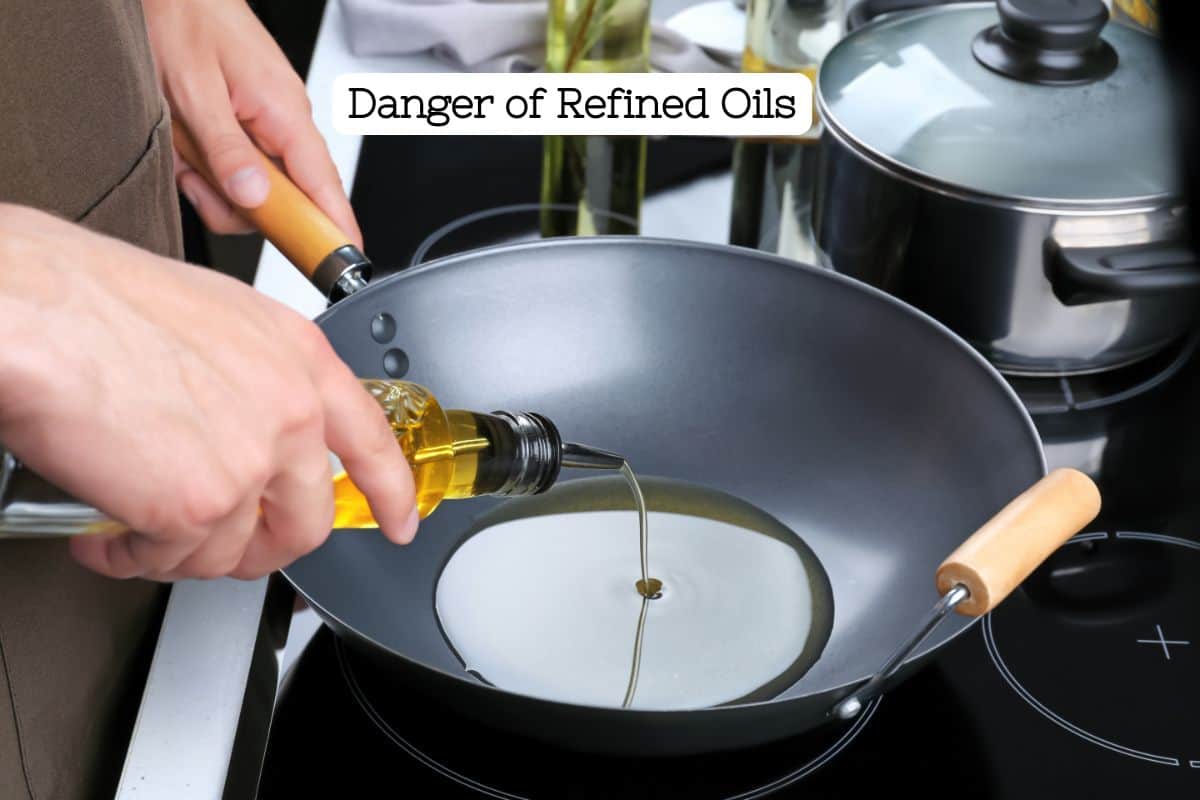
Refined Oil Process
One of the main issues with refined oils lies in their production process.
To obtain a higher yield and extend shelf life, manufacturers subject these oils to high heat, chemical solvents, and deodorization.
Unfortunately, these refining methods strip the oils of their natural nutrients, antioxidants, and phytochemicals, leaving behind a nutritionally depleted product. Consequently, what was once a beneficial source of healthy fats can become a pro-inflammatory substance, contributing to oxidative stress in the body.
Another significant concern with refined oils is the presence of trans fats, which are formed during the hydrogenation process.
Potential Health Concerns
The consumption of even small amounts of trans fats can have detrimental effects on blood cholesterol levels, leading to the clogging of arteries and subsequent cardiovascular complications.
Moreover, the imbalance of fatty acids in refined oils can disrupt the delicate omega-3 to omega-6 ratio in our diets.
Omega-3 fatty acids are anti-inflammatory and essential for heart and brain health, while excessive consumption of omega-6 fatty acids, abundant in many refined oils, can promote inflammation and contribute to chronic health conditions.
The high caloric density of refined oils can also pose a challenge for those aiming to maintain a healthy weight.
As these oils lack the fiber and satiety-inducing properties found in whole foods, they can easily lead to overconsumption, contributing to weight gain and related health issues.
Holistic Nutrition Recommendations
As a holistic wellness coach, I advocate for the use of unrefined, minimally processed oils such as extra virgin olive oil (in medium heat), unrefined coconut oil, and unrefined avocado oil.
These oils retain their natural nutrients and beneficial properties, offering a healthier alternative to their refined counterparts. By incorporating these wholesome oils into our diets, we can nourish our bodies with essential nutrients and promote overall well-being.
The dangers of refined oils are rooted in their processing methods, the presence of trans fats, and their potential to disrupt the body's fatty acid balance.
To prioritize our health, it is essential to minimize the consumption of refined oils and opt for unrefined, whole-food-based oils that offer genuine nutritional value and support our holistic health journey.
Oils to Avoid for Better Health
In the quest for a healthier lifestyle, it is crucial to be mindful of the oils we use in our daily cooking. Unfortunately, some oils, particularly seed oils and conventional vegetable oils, have garnered criticism recently due to their negative impact on our well-being.
Seed oils like sunflower oil, safflower oil, canola oil, corn oil, peanut oil, and others are often high in omega-6 fatty acids. While omega-6 fats are essential for our body, excessive consumption without a proper balance of omega-3 fatty acids can lead to inflammation and various health issues.
These oils are commonly used in processed foods and cooking, making it important to be cautious of their health risks.
Conventional vegetable oils such as soybean oil, cottonseed oil, and grapeseed oil are also widely used due to their affordability and availability.
However, they typically undergo extensive processing, which can strip them of essential nutrients and lead to an imbalanced ratio of omega-6 to omega-3 fatty acids.
In contrast, when comparing avocado oil vs coconut oil, both stand as healthier alternatives to the oils mentioned above. Avocado oil is rich in monounsaturated fats, while coconut oil offers unique medium-chain triglycerides (MCTs).
Both oils have higher smoke points, making them suitable for high-temperature cooking, and they bring their distinct flavors to dishes, enhancing the culinary experience.
By opting for avocado oil and coconut oil instead of the oils to avoid, individuals can make positive changes in their diets. Embracing these wholesome oils can contribute to better heart health, a balanced fatty acid profile, and reduced inflammation.
Conclusion
When choosing between avocado oil and coconut oil, it is essential to be aware of the oils to avoid, such as seed oils and conventional vegetable oils.
By making informed decisions and incorporating healthier alternatives like avocado oil and coconut oil, we can nurture our bodies and savor the benefits of these nourishing oils in our daily cooking.
Do you prefer using coconut oil or avocado oil? Which do you use the most? Let us know in the comments below! Don't forget to subscribe to our newsletter for wellness tips and recipes!
Have a healthy week!
Natalie
PS: Check out our web story here!

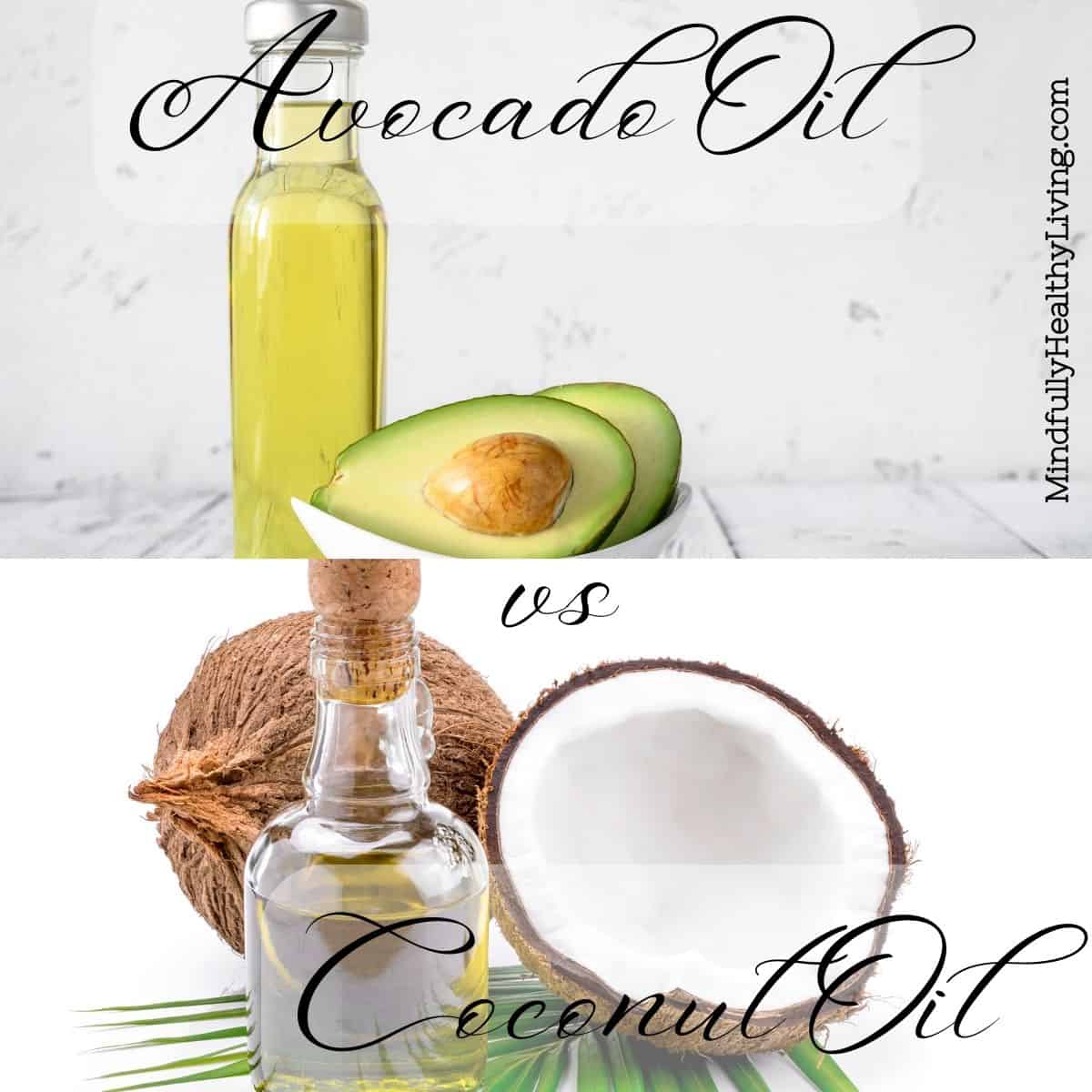
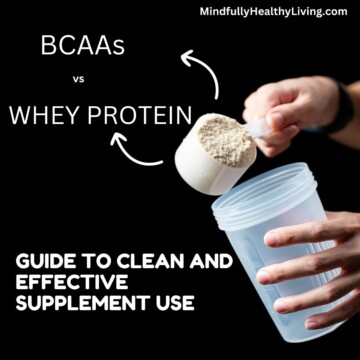


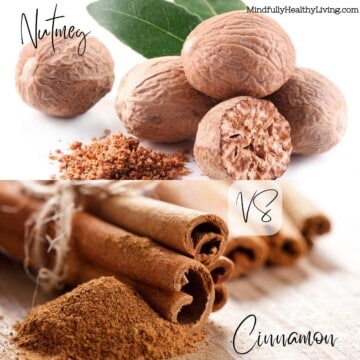
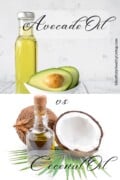
Comments
No Comments